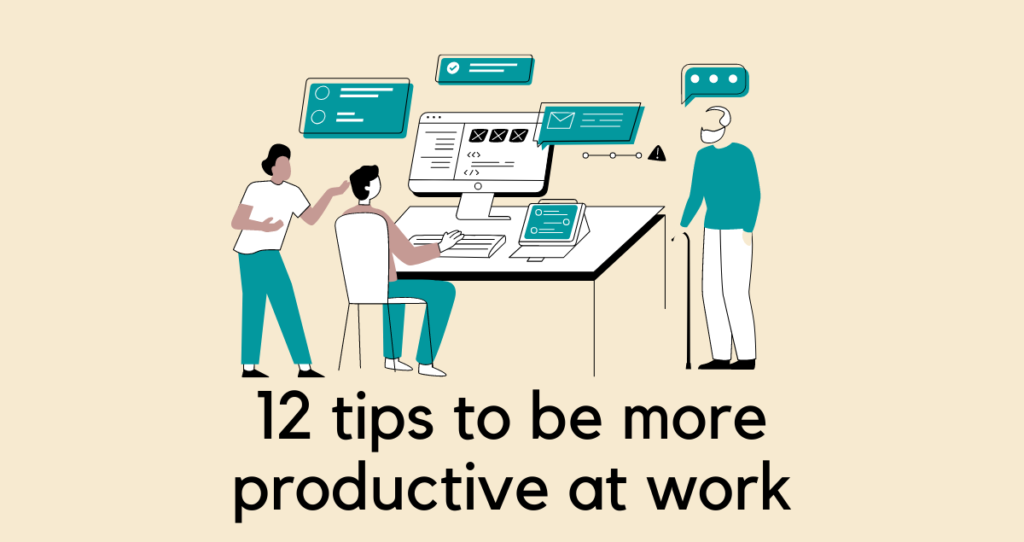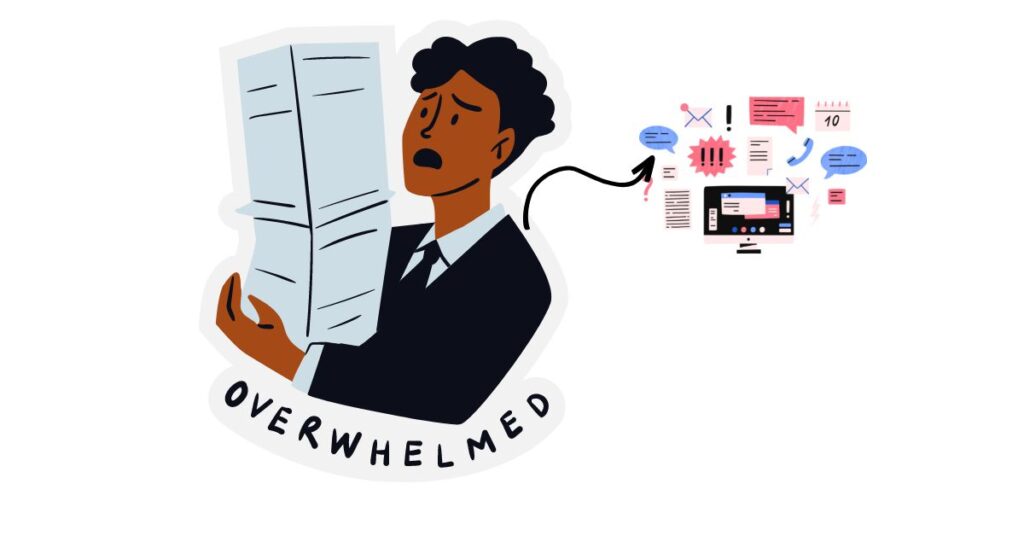Time management is an important skill that allows you to accomplish great results in a short period of time, achieve success faster, reduce your stress levels, and lead to more freedom. Time is the greatest asset that once wasted cannot be regained. The extra time gives you a chance to serve more customers, meet your deadlines, or simply spend time with your loved ones. That is why successful people manage their time wisely. If you want to achieve great production whether at work or at home, you need to manage your time efficiently.
When it comes to managing your time, however, things can get a little bit complicated. The good news is that you don’t need to go to school or read a ton of books to successfully manage your time. You only need to make a few changes in your habits and plan for success. The most effective way to manage your time is to follow this simple guideline.
- Understand where you are spending more time and outsource tasks you are not good at
- Know the tasks you have at hand and the resources you need to accomplish them
- Carefully organize and group your tasks through prioritization and establish a deadline for every task
- Make a schedule that meets your timeline
- Stay organized, and avoid multitasking and procrastination.
Distractions are also some of the reasons why you might be wasting your time. For example, if you are working on a task and someone calls you to discuss an unrelated matter, you might end up wasting a few minutes. It also takes time for your brain to regain focus and concentration on the original task.
This article will walk you through the steps you need to take to improve your time management skills, boost your productivity, and reduce your stress level. Without further ado, let’s get started.
1. Know where you are spending too much time
When it comes to time management it is crucial to understand where you are spending too much time. You need to evaluate the time you spend on every task and optimize it when necessary. It is also possible that you are losing too much time due to external events that you get involved with. For example, you might be spending appropriate time on your own projects but suffer greatly when supporting teams outside your own focus area. In this case, we can safely assume that you are being asked to perform a task that you are not fully trained for and you lack the skills and resources to provide results.
In order to better manage your time, you need to outsource such projects to fully trained individuals. By getting rid of projects you spend more time on or learning how to do them better, you finish them in a much shorter time and use that excess time to strengthen your infrastructures or improve existing systems.
Related: 12 tips to be productive at work in 2022
2. Create a daily schedule
The lack of time management is directly associated with the lack of a schedule. You cannot use your time wisely if you don’t know where you need to spend more or less time. In addition, you cannot know if you are not using your time correctly if you have no idea what your agenda looks like during the day. In other words, you are disorganized and everything you are doing is solely based on chances or guessing.
Daily schedules can help you to better manage your time. Most successful people create their schedules a day. This allows them to know exactly how the following day will look like. In other words, they get to know each task on the agenda, how long they will take, and the resources they will need. These habits allow successful people to optimize their time by prioritizing their work.
This time management strategy works so well that it helps you meditate on uncertain events that can occur a day before or in the morning before your day starts. For example, you can get up early in the morning and eat your breakfast while thinking about ways to solve your most complex task. Once you get to your task, you will probably solve it right away because you had a chance to think through it. A big mistake many people make is to have no daily schedule at all or schedule everything in the morning. By the time they are done scheduling for the day, they still have to gather the resources needed to complete their tasks which eat up most of their time.
3. Keep similar tasks in the same group
One of the best and most effective ways to manage time is to group similar tasks together. For example, if there are emails and messages you need to send throughout the day, it will be efficient to send all these emails and messages at once and be done with them. Why would you follow this time management strategy?
Because you will not have to deal with different and unrelated tasks back and forth. When you move from one task to another task that is not related to the first one, your brain treats the second one as a distraction. In other words, it takes time to adjust and fully concentrate on the second task. By the time you are fully adjusted, it will take extra time to adjust to another unrelated task. The time it takes to adjust your brain and become fully functional is equated to time wasted. You can also develop some level of stress due to juggling different tasks.
An effective method that can help you manage your time better is to put your tasks in similar groups. After grouping similar tasks, you will then handle similar tasks at the same time. This way you will not need to adjust your mind to the next task because it is similar to what you just finished. In addition, you might as well need similar resources to complete these tasks. As a result, you will finish your tasks much faster and manage your time effectively.
You might also like: 4 reasons why success takes time all the time
4. Time every task
Even if you are not good at time management, you might be able to improve your skills by timing every task. During your daily planning routine, you should be able to know what you are going to do and how long each task will take. People who suck at time management are usually those who just list what they want to do without specifying how long each task will take. As a result, they end up spending hours on things that can take a few minutes.
By timing every task, you get to track your progress and avoid spending more time on a task than necessary. For example, if you see that you are exceeding your time limit, you can either choose to have someone else do it or simply walk away from the task. It could be wise to have one task unfinished than ruin your whole day’s schedule.
5. Master the art of prioritization
Prioritization is probably the most important skill you need to better manage your time. So, what is prioritization? Prioritization is the act of arranging all your tasks based on the level of importance or deadline. For example, if there is an investor who must be contacted by the start of the day to secure funding, that email or chart should be a priority. Or if there is a task you need to complete that other tasks depend on, that task must be completed first.
You should organize your tasks based on the level of importance, deadline, or simply hierarchical order. This way, you’ll be working on tasks in order of their priorities. With this strategy, you will have fewer delays and waste less time. Even if you end up not finishing all your tasks during the day, at least you would have finished the most important tasks. That is what time management is all about.
You might also like: 4 steps on how to achieve anything you want in life
6. Become organized
Organization reduces distractions. Fewer distractions lead to high performance and higher productivity. If you need to know how to manage your time, start by being organized.
For example, if you are at a workplace, organize all your tasks and tools, know how to do them, the resources you will need, and where to find those resources. This strategy keeps your daily routine in harmony with your tasks. You get less stress when you don’t have to ask 3 people where to find one little thing.
The organization also starts at home. People who get stressed at work usually carry the stress from home. You cannot have a harmonic work environment and manage your time effectively if your home is falling apart. The stress you get from home affects your work environment.
7. Increase your concentration by avoiding distractions
Distractions are killers of performance and time wasters. To manage your time efficiently, you need to stay away from distractions. A simple phone call or text can cost you 20 minutes of productivity. You cannot better manage time if you are getting distracted every second.
A good way to manage your time is to close your phone, open fewer tabs on your computer, log out of your social media accounts, and put a do not disturb sign on your desk.
8. Avoid multitasking
Some people consider multitasking as a good thing. Although some tasks require multitasking, you should avoid multitasking as much as you can.
When you multitask, you end up navigating back and forth from one task to another. In other words, your brain does not fully concentrate on a single task. Instead, the brain distributes its attention to multiple tasks. The overall result is below-average performance on each task. So, to manage your time well, avoid multitasking when possible. Concentrate on one task, crash it, and move to the next one. This strategy will keep you motivated, increase your performance, and reduce your stress level.
You might also like: 6 ways to develop a growth mindset
9. Work when you are at work
I cannot talk about time management without stressing the principle of working when you are at work. How often do you get to work and start working 20 minutes late because you were talking to your coworkers? Or taking random phone calls from friends talking about parties, a video of a cat, or simply where you will eat dinner.
You cannot optimize your time effectively if you are wasting it on nonessential activities. You need to work when you are at work. If you have allocated a specific time for a certain task, you should not do anything else until that task is complete. If your co-workers want to talk, tell them that you are working, and therefore, they should wait. You need to work every time you are at work. That is how you manage your time.
10. Avoid procrastination
Procrastination is a big killer of time. It can take a few hours of procrastination to destroy an entire month of hard work. When you procrastinate on a task, you don’t just forget about it. Your brain keeps thinking about it every day until it is either completed or past due. Thinking about something without doing anything about it is a waste of time. The more you think about something, the more stress level you develop. You cannot manage your time wisely if you are prone to procrastination.
If you procrastinate a lot, start by creating a list of things you must accomplish at a particular time. Make sure that each task has its own deadline. Then, work on each task and complete it before starting the next one. This habit will later help you get rid of your procrastination habits. As a result, you will start accomplishing more and save more time.









